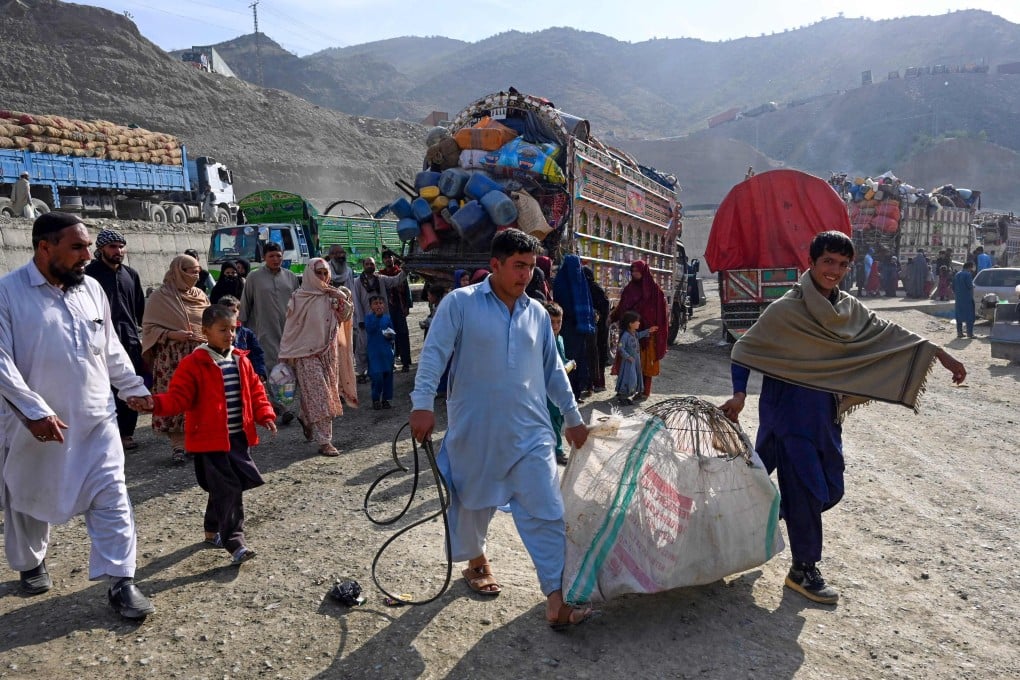Advertisement
Afghans leave Pakistan ‘with a heavy heart’ as it forces out settled migrants to protect ‘welfare and security’
- Pakistan says deportations protect its ‘welfare and security’, amid growing anti-Afghan sentiment from economic woes and cross-border militancy
- The deadline to leave is still days away, but police have already begun raiding communities and detaining Afghans
Reading Time:3 minutes
Why you can trust SCMP
0

Maroza Bibi and her children are among hundreds of Afghans waiting at the Pakistani border, hurriedly leaving a country she has called home for decades in fear of arrest.
Islamabad has issued an order to 1.7 million Afghans it says are living in the country illegally to leave by November 1, or be deported.
A series of holding centres are being established across the country in preparation for the Wednesday deadline in what rights groups and lawyers say is an unprecedented crackdown.

“I am taking a lot of good memories. I was expecting Pakistan to give us nationality, but that did not happen, compelling us to go back almost empty-handed,” Bibi, 52, said at the Torkham crossing in Khyber Pakhtunkhwa province on Friday.
She was around 10 years old when her family fled the Soviet war in Afghanistan, settling in Kashmir where she raised a family and where her husband is buried.
Millions of Afghans have crossed the border during decades of conflict, making Pakistan the host of one of the world’s largest refugee populations.
But relations have steadily soured between the two countries since the Taliban government seized power in August 2021 and imposed their austere version of Islamic law.
Advertisement